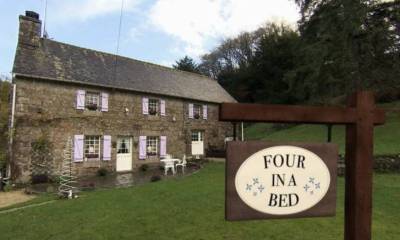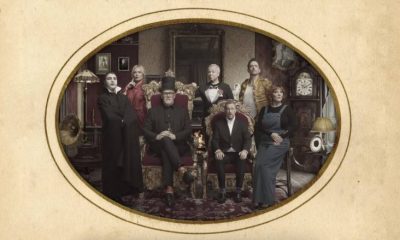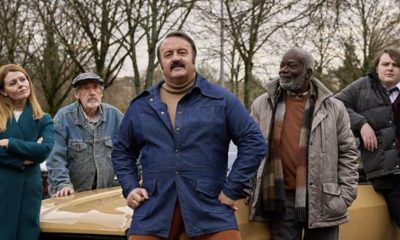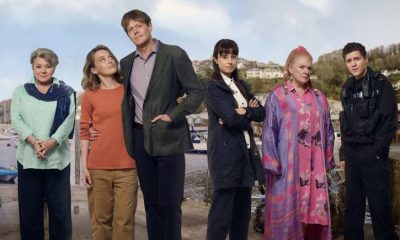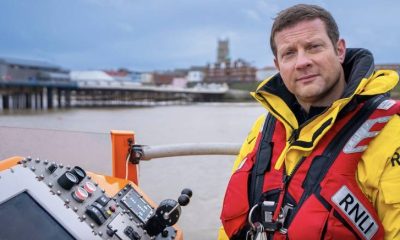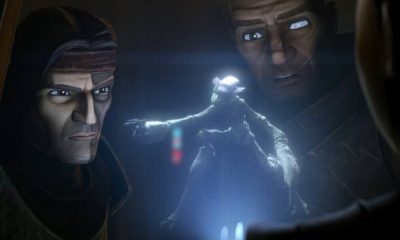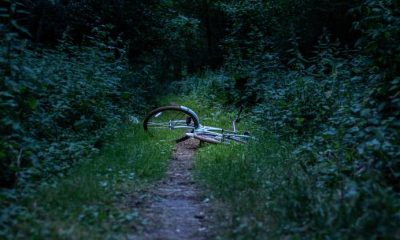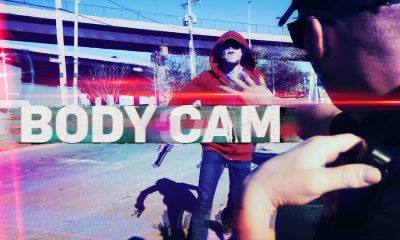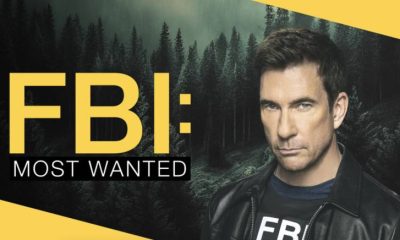Interviews
Manhunt The Night Stalker | Interview with Ed Whitmore (Writer)
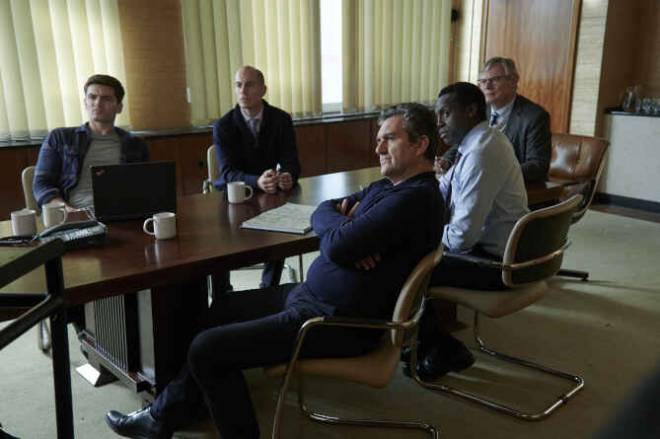
What reactions did you have to the first Manhunt?
heard that people felt they were taken into the body of a real-life police investigation in a way they hadn’t been before, not to that level of detail and minutiae and that the idea of seeing an investigation through the eye of a senior investigation officer, sticking so close to the SIO and seeing the case unfold, felt very fresh as a way into a true crime story.
I think that success was to a massive degree down to Martin Clunes “performance. It was justly widely praised for its nuance and restraint. Martin”s performance really sat at the heart of the whole piece.
People really responded to the realism of it, and their response to the fact that there weren’t car chases, and there was not lots of blood and guts. It was very restrained and very real, and we took the audience into the spade work and the detail that detectives have to wade through to get a result.
How did this Manhunt sequel come about?
I first heard about Colin Sutton, not through his work on the Levi Bellfield case, but through the case of the Night Stalker. My wife, Tracey Malone, who is also a script writer, brought the case to my attention because I was writing a script at the time about somebody who came on to finish other people”s cases, called The Finisher. She said to me you should get in touch with this detective because he was a real life finisher. He got on board this very long running case and solved it very quickly.
He sounded like a very interesting character and an exceptional detective. I was living in LA at the time so the next time I was back in London I arranged to meet Colin. I initially talked to him about the Night Stalker case, and then he said $would you like to read my diary of my work on the Amelie Delagrange investigation”. So I got side tracked into that and it ended up becoming Manhunt.
When Manhunt did so well, and we were excited about the idea of doing another story based around another of Colin”s cases, the Night Stalker was the obvious candidate. It was a huge case involving a big London wide manhunt, and it was just a no brainer that this would be the second season show.
You have said previously that the challenge and satisfaction of dramatising someone”s real life, and working with that person was new to you, and that you would love to do it again.
It”s been great working with Colin again. I think this goes to every relationship on this second season. The entire core team has returned so we have this great shorthand. The best way I can describe that is that we all know what Manhunt is, and what Manhunt isn’t and those parameters are quite important. Every show needs to know what its parameters are particularly with Manhunt because we are dealing with real cases and real people.
We have this aesthetic of what it is, and if it is ever tipping into the melodrama which would be completely fine in another show, I am not criticising melodrama per se, but as soon as it strays over a line we all go $that”s not Manhunt “and it”s brilliant. At some point even though I created the show I have my moments where I get carried away with something and I have written a scene which might be exciting and might be dramatic but it is not Manhunt. Then Philippa Braithwaite, the executive producer, or Marc Evans the director, or Martin Clunes will say $that”s not Manhunt”. It is brilliant to be in a position where you know where the show is and we are all in concert with that.
You built up a great rapport and friendship with Colin Sutton. Did this make the writing process easier?
I think we had such an easy time this time because we knew each other. I think Colin was understandably wary about how we were going to truncate this vast investigation into three hours last time. I had to educate myself to see it through Colin”s eyes, somebody telling your story, and how personal that felt, and how important it was to get it right.
Equally Colin had to see things through my perspective. I had this quite formidable job of distilling the essence of this investigation which went on for months and in fact years into three ITV hours which is nearer two hours than three when you take out the commercial breaks.
This time around we had an extra hour, which was great. But still the same challenges were there and it was just a joy to sit down with Colin and say $these are the things we absolutely need, these are the things we would like to have, if we are going to create space to keep Colin”s personal life in the show then other things will have to go”. Those decisions about the core ingredients, ran right the way through to the fine tuning. With the research Colin was there every step of the way. It has been an absolute privilege to collaborate with him again.
You talked about how working with the person a drama is about is incredibly efficient because they are the living breathing resource.
Absolutely You get this ultimate resource. Any question you have, Colin can answer. It wasn’t just me. He was great with production design. They would ask Colin about details of the office with things like the memo board for the investigation and Colin could really get into the minutiae of that.
Many decisions that you take have a different implication or ramification if they were in a fictitious drama. But when something is real it changes everything. That goes down to the first Manhunt. We took the decision, because he never did, that Colin, although he met Levi Bellfield briefly in his remand cell, he didn#t do the interviews. Obviously in a fictitious drama there would be understandably be pressure for your lead actor, having watched him successfully catch his prey would then be the one to sit down opposite him under the lights and dig into him.
But actually, the real Colin didn’t, and we didn’t. Colin was very good about all those things. He totally understands that sometimes you have to shortcut things just to make the story fit the four hours and he is very good at understanding about that. If there is something that fundamentally feels false and not true to the essence of police work then he will always say $no, we can”t do that “and I would always listen to that.
In the first Manhunt you sent Colin the scripts as you wrote them and he would return them with any notes. Is that how you worked this time?
It was a very seamless process. Because Colin produced this fantastic diary I was always in this position where I’d got material to work from. That would my starting point. I”d have a block of Colin”s diary, and turn it into a script and send that to Colin. He would send notes back to me and I would check it with script editor and co-producer. We had really efficient working methods, which is why it would be lovely to do more stories with Colin, although I am not sure what they would be at this point.
You clearly have a high regard for Colin Sutton and for his achievements during his police career – what is it about him you most admire?
What I admire most about Colin is that he balances a complete tenacity and focus on the goal of catching whoever it is he is after with being decent, humble, approachable and a compassionate leader. That balance, despite his achievements, is very ego free and is very much about the task in hand. It is not about him. There is no grand-standing, he is meticulous, and if he gets something in his laser beam sights he won”t stop until he has achieved his goal. And that is the thing about him I admire the most.
The unblinking tenacity he displayed, I am sure in many other cases as well, but certainly in the first Manhunt in his pursuit of Levi Bellfield, and in Night Stalker it was the same thing. He came onto this case which had been going on for over a decade and it needed somebody to look at this massive case work, a huge amount of evidence, huge amount of statements, huge amount of man hours without success, they had not identified the perpetrator and Colin has this almost chess player like focus on where are the weaknesses in the investigation so far, what do we need to change, what are the potential ways we could catch this person. Really just to focus on that and tune out everything else and that is what he did. That is what gave rise to the operation that ultimately ensnared Minstead Man (the Night Stalker).
Was part of your aim in writing scripts for the Night Stalker to be respectful of the feelings of the people involved?
It is vital you are respectful. We also wanted to give a voice to the case because there is an argument, which I broadly agree with, that if the Night Stalker had been attacking on the scale he was attacking, but that the victims had been younger and more visible, it would have been a much much bigger story, given the severity of what was happening. But because they were elderly it just didn’t make the headlines, and headlines at some point crudely do translate into police budgets.
The community pulled together and came up with all kinds of inventive things – like a lot of the elderly single women didn’t have cars and they felt the Night Stalker could see that, so they came up with a neighbourhood watch plan where cars were parked on the drives of elderly residents who didn’t own cars. It is little things like that we put in the drama, lots of quite inspiring detail of where you see a community coming together.
You see the police really doing everything they can to stop this man. They were absolutely dependent on interviewing those victims closely even though it was a traumatic thing they had to relive in answering those questions. That was very tough on the victims, but also on the police officers. That took its toll, especially considering the number of victims and how long it went on for. Telling that story of the human toll of what this man did and putting that on screen is something I was really glad to have had the opportunity to do, especially in the light of the case not even coming close to garnering the attention it really merited at the time.
A key decision in Manhunt 1 was that there wouldn’t be any kind of conventional melodrama – no scenes of victims being attacked, no gruesome scenes.
Generally we followed the same ethos as we had for the first series to avoid melodrama, and to really get the drama from the real life pressures of running a big police investigation rather than turning the volume up. It worked so well the first time that we stuck to it the second time.
We did include a scene where the Night Stalker is chased for two miles by a police officer on foot after he’d broken into an elderly woman’s house. The victim had shown great fortitude and courage in phoning 999 and making herself understood despite the absolute terror she was in. Her bravery meant the police were able to get to her quickly, and the chase ensued. so we did include that scene because it would have been disrespectful not to, but we shot it very carefully.
You talked about putting the audience into the cockpit of the investigation and into Colin”s shoes in the first series.
The massive surveillance operation to catch the Night Stalker was taking its toll on Colin. The operation took place at night, but he also had many things to do during the day. He was sleeping for just an hour at night, and getting really seriously fatigued, and with all the pressure on him, just beginning to really push him to the very limits of his faculties.
So we really pushed the idea of putting the audience in Colin”s shoes in Manhunt 2 and I think it works very effectively. The way the world feels when you are very very tired, the way things sound and the way things are far off, we wanted to get the balance right. It was an unsustainably hard schedule for anybody but he was absolutely determined, and that speaks to Colin”s tenacity. He is the kind of person who is prepared to do that. He is a man of quiet self sacrifice.
What have you gained from working on these two Manhunt productions. What did you learn about the police?
The thing that has really impressed on me is, above and beyond the nuts and bolts of their job, which is catching criminals, how much the police also become involved with the victims and how much of their own heart and soul they put into not just catching the criminal but doing everything they can to make sure the victims “experience from there on is as painless as possible.
In the end they have a job to do and there has to be some separation but it is inevitable when you are getting into the detail with an elderly woman about her assault you can”t but be moved, you can”t not be affected.
That is something we explore a bit more in the new series. It is almost two jobs in one: there is the mechanics of a police investigation and accruing sufficient evidence to get the green light from the CPS to move to charging, and that in itself is a massive responsibility. Then on top of that they are dealing with people who have been through appalling ordeals, and actually to some degree have to perform similar functions as social workers.
The totality of what police officers give up in their duties is far beyond what I appreciated before I started on Manhunt. They give their all and that has very tough consequences on their own lives.
There is an inherent element of self sacrifice in police work that I didn’t fully appreciate but find absolutely awe inspiring.
What impact did Manhunt 11 have on you personally?
The fact that the Night Stalker”s victims were all elderly did make me think very deeply about how we treat the elderly in society. The fact that the case had not garnered the headlines it might have done if the victims had been younger made me ask the question why not.
That is something we touch on particularly in the last episode. The family liaison officer gives a speech which came out of a lot of the research I did in how we don”t really see the elderly. We register their presence but don”t see them as individuals, we see them as a flock in a way. Part of the reason we do that is because we know that is our destiny. It is a destination we can”t avoid. The slightly out of sight out of mind attitude that we can have as a society towards the elderly members of our community is rooted in our own fear of the future. The elderly have been very much in the forefront of the Covid story and how we as a society, have a duty to protect them and say an 80 year old’s life is as important as an eight year old’s. The themes of this series are very timely.
Did the crimes shock you?
Absolutely, I couldn’t recall coming across such a bizarre mixture of traits in a serial offender. He obviously had a vicious, brutal streak, he was rapist, he was violent. But he also, sometimes within the same offence would ask the victims if they would like a cup of tea. He would talk to them and take their pulse, sometimes because they were faking illness or the onset of a heart attack to get rid of him.
He displayed this meticulous preparation which as we comment in the drama seemed almost at odds with the depravity of what he was there to do. He displayed this almost forensic level of self disciplined caution, which all contributed to making him very hard to catch.
Were you disturbed to discover that these crimes had gone undetected for so long?
It is absolutely mind blowing when I sat down and read the material Colin sent through, and the fact it had been going on for so long. The phrase that always came to mind was a recurring nightmare. You read case after case and it sounds awful but they begin to blur into each other because he did the same thing again and again, following almost like a rehearsed script.
At the end of it, you have got on the other side of the fence the police trying to catch him and they are always one step behind.
That is the frustration Colin feels when he joins the case. They are all working hard but something in their approach is not working, hence they haven’t caught him and then there”s this wonderful moment of Colin thinking I am just here to do a review, but actually I think there is another way of doing this. He brings this fresh eye – it is a really stirring moment. At the start it is quite difficult for him because the team don”t make him super welcome understandably to some degree. He is there to review but then he has this moment of inspiration of where he thinks I could actually steer this ship in a different direction with a better chance of getting a result. That is really the story of Manhunt 2: when the rubber hits the road is when Colin begins to put his hand on the tiller.


























